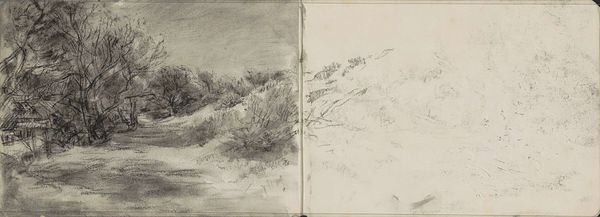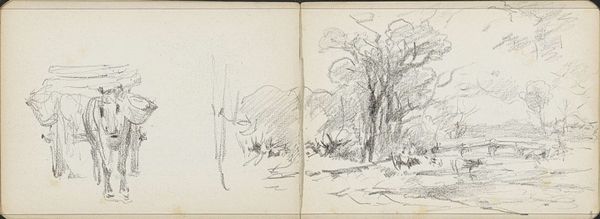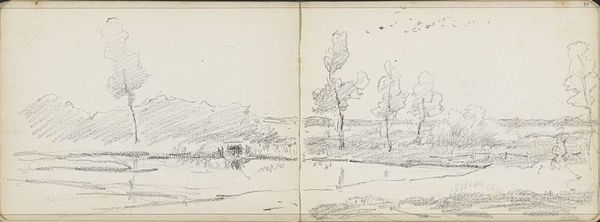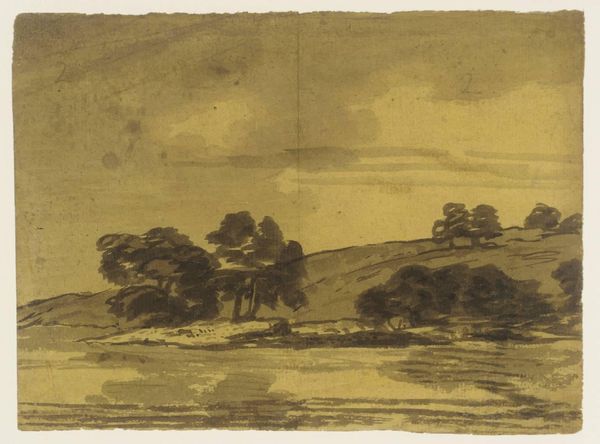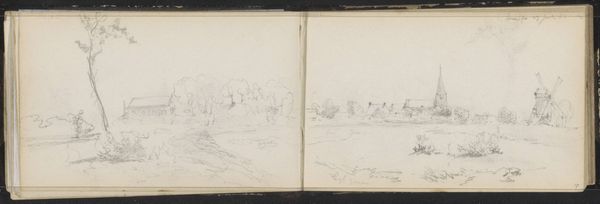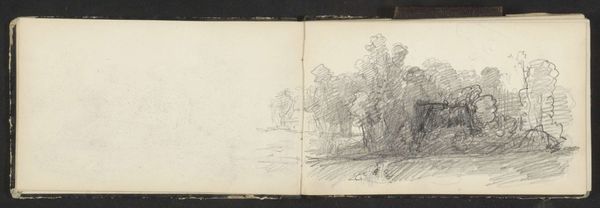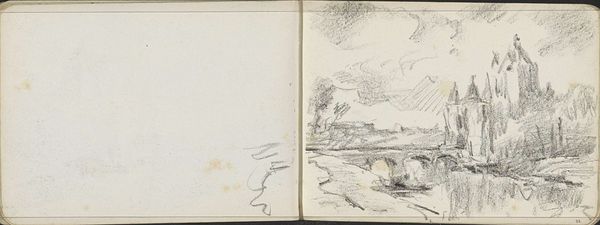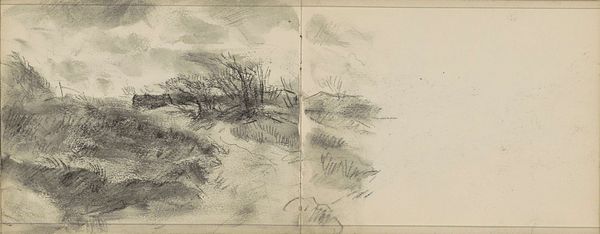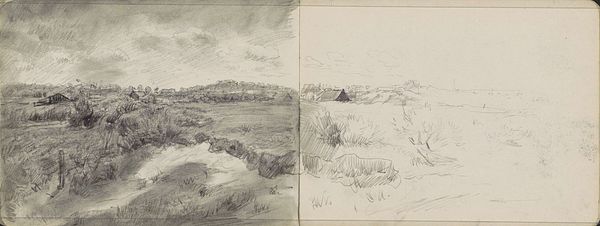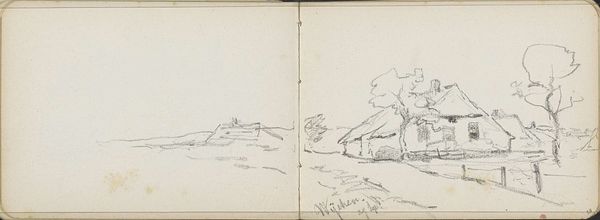
drawing, coloured-pencil, pencil
#
drawing
#
coloured-pencil
#
landscape
#
road
#
coloured pencil
#
pencil
#
watercolor
#
realism
Copyright: Rijks Museum: Open Domain
Editor: This is "Berglandschap op de weg naar Marienbad" by Johannes Tavenraat, made in 1869. It’s a colored pencil and pencil drawing, a quick landscape study, held at the Rijksmuseum. There's something very immediate about the rendering of the scene… almost like a visual diary entry. How do you interpret this work? Curator: It's tempting to view it purely aesthetically, but let’s consider the social and artistic context. The late 19th century saw increasing interest in landscape painting and sketching *en plein air*, wasn't it? For middle-class artists, such scenes provided readily accessible and acceptable subjects. It reinforced prevailing Romantic ideas about Nature. Where would you place Tavenraat relative to contemporaneous Realist painters? Editor: Well, the Realists like Courbet aimed for social commentary; whereas this drawing, while realistically rendered, seems more about personal experience and capturing a fleeting impression. Does this have any connections to Impressionism, a style of painting which came later? Curator: Yes! His interest in depicting a specific location connects to Impressionism, which soon influenced art exhibitions, critical acclaim, and purchases. But this work reflects the tastes of emerging museum audiences and art markets; artists could gain status from this kind of subject. Was it a 'radical' or a generally accessible piece for its intended viewers? Editor: Right! It fits existing aesthetic expectations while adding its individuality through subtle details in line and color. It does make you wonder about art buyers at the time… Curator: Exactly, which informs how landscapes are curated and exhibited even now. Editor: I had not considered how socio-political and economics affects our perception of everyday sketches. Thank you for pointing that out.
Comments
No comments
Be the first to comment and join the conversation on the ultimate creative platform.


